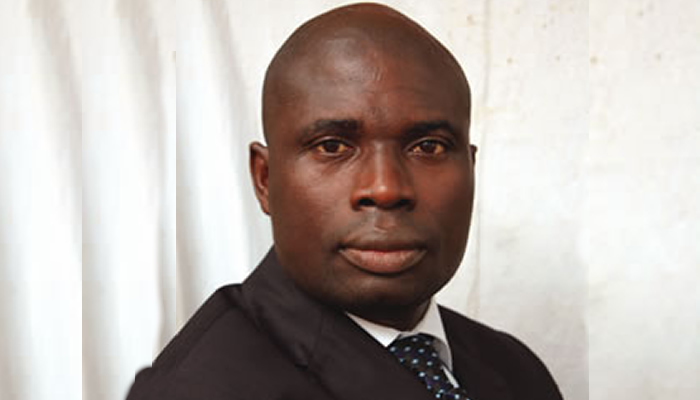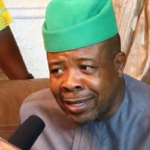
Governor Samuel Ortom, we see even when we cry, don’t we? At least people in the culture I come from believe we do. They mean no matter how emotional we get, regardless of how overwhelmed by challenges, we shouldn’t lose our sense of reason—that sense of good judgment. I’ve seen you as a man of reason, a man who in the face of violent attacks on the people of Benue State only expresses his concerns as any leader should. But you’ve crossed that line, foraging now in a different territory and here I call your attention to it.
In an interview you gave in the course of your recent trip to the United States, you said you did a study. Based on this you expressed a view that, for me, muddled further the conflicted narratives that some offer regarding Nigeria’s security challenges. Note that in any academic setting, a study has a statement of the problem, objective, the investigation carried out, the findings, analysis and conclusion which may be generalised, sometimes only up to a point. These items in your thesis on the nation’s security challenges as submitted in the interview are laden with internal inconsistencies and your analysis is over-generalised. I shall return to it. First, I lay the background for my submission.
Many prominent figures in Nigeria publicly express views that are more toxic than the worst of toxins. Their views are so narrow that one wonders if they actually think through what they say. One thing that’s certain is that they are sometimes blinded by some form of sentiment. Some academics, religious leaders and politicians belong in this category. Their views have negative implications for the nation; they do massive damage because some of our peoples take their word as the law. So if we don’t microscopically interrogate what they say, they’ll continue to tear apart fabrics that hold peoples together, poison the minds of Nigerians against one another and destroy the nation.
For instance, some say as religious leaders, they shouldn’t be held responsible for the bad behaviours of followers. No one does. Yet one could ask: By expressing such views publicly what then is the work of religious leaders who distance themselves from the same people their religion mandates them to make behave right? Such religious leaders are saying something contrary to what the founder of their faith commanded. The founder of their faith says his duty is to people who don’t behave right, not those who do. These religious leaders are essentially saying one main framework that all societies depend on to stand is no longer relevant in Nigeria’s case. Who then do we turn to in order to make citizens behave? Views that aren’t well thought through thrive when no one interrogates them. Governor Ortom, your thesis which I shall return to is the latest addition.
In this clime, we’ve also heard academics who narrow the entire security challenge we have to just one non-state actor. They say this non-state actor vows to take their land, so in their submissions, the impression is given that every attack particularly in the South of Nigeria is caused by one non-state actor. This submission was made in a nation where some of us had been commenting on the overall security challenges we had since Boko Haram started and since killings were first mentioned on farmlands involving herdsmen and farmers in the southern sections of Kaduna State.
Years ago residents in southern sections of Kaduna and in many parts of the South of Nigeria mentioned so loudly what was happening on their farmlands. Residents talked about encounters with herds that ate their crops but whose herdsmen escaped. We heard of the occasional killings of either a farm owner or a herder. That was long before this degenerated into reprisal attacks in southern sections of Kaduna State in particular, and these were widely reported. In your thesis which I shall yet lay bare, Governor Ortom, you claimed all of that never happened.
As I often state, when the analysis of an issue is wrong the solution proffered will be wrong. It’s one reason we are where we are in this nation. Governor Ortom, your claim rhymes with views held by some in the South of Nigeria who are predisposed to putting sentiments above reason, imagination above reality. For instance, we followed the trajectory when farmlands incidents stretched into herders being accused of carrying out kidnappings. Meanwhile, in Nigeria’s South, there were once reports of criminal elements among local tribes who used herders to keep watch over kidnapped persons.
It’s worth noting that such local criminal elements aren’t mentioned in the narratives when crimes occur. Rather, the other tribe was perennially suspected. When people in a church in Owo, Ondo State were killed this year, there was a dramatic episode when an academic inferred that some members of ‘the other tribe’ were sending a message to take someone’s “patch of territory.” However, official investigation shows otherwise. In a recent interview, the academic still narrowed security challenges in the country down to the activity of just one non-state actor from ‘the other tribe’. His submission muddled up the issues regarding our security challenges by presenting a narrow, divisive and wrong analysis.
This happens when leading public figures who should be the most clear-headed among citizens deploy narrow sentiments in addressing issues. They thereby complicate the challenges they should be finding solutions to. As such, Governor Ortom, your submission deserves a closer examination for the sake of Nigerians who want to reason rather than be driven by sentiments rooted in blind hatred for the other tribe or religion.
While you were abroad one of the things you said was that the terrorist groups, Boko Haram, ISIS and ISWAP in collaboration with Fulani herdsmen, were working on one agenda. “They collaborate by providing arms to them and doing the same thing by killing,” you said. Two, you said concerning one of the nation’s security challenges: “Some people have the narrative that it is farmer-herder crisis. It is not so. It is a dummy that has been sold to shield people away from knowing the truth.” I shall start with the last.
Governor, first, did it occur to you that you were focusing on the problem rather than the solution which is what a leader should be focused on? In the process, you end up demonising the other tribe as though the entire tribe is involved in the killings in Benue State. You also appear to think all your listeners only want to hear who does what, rather than what you the leader are doing to remedy the situation. Your submission also indicated that there were never incidents on farmlands between farmers and herders across Nigeria. You say any such claim is a dummy. Governor, so you want to rewrite history under our very noses.
Since 2012, I’ve severally re-narrated on this page how attacks began to happen in the places where they did. I’ve had to state the patterns these attacks took in different parts of the country. One reason is to ensure we don’t forget the facts in spite of the efforts of some public figures to change the narrative; these are people who speak from their imagination rather than reality. They rewrite what we’ve all seen happen. They do this to spice their narratives which are spurred by their hatred for the other tribe. Governor, I put it to you that you have joined the group.
Two, there are inconsistencies in the view you express. The study you said you conducted was just a simple comparison of figures. You note the number of cattle in some countries compared to what Nigeria has. You say these countries have more cattle but they have no farmer-herder issues. That means you are saying Nigeria with its smaller population of cattle has no reasons to have farmer-herder palaver. It means in one breath you inherently admit there have been farmer-herder incidents in Nigeria. In the other, you argue that there’s nothing like farmer-herder incidents, that it’s a dummy. Governor Ortom, this argument is a fundamental flaw if your submission were part of a PhD thesis. But contradiction happens when people leave facts as they are and dabble in expressing sentiments that fit their own narrative.
To be concluded.
[email protected]; 08036683657





